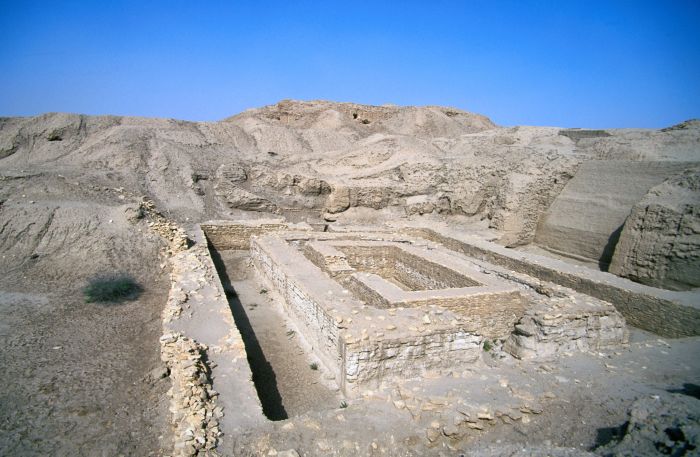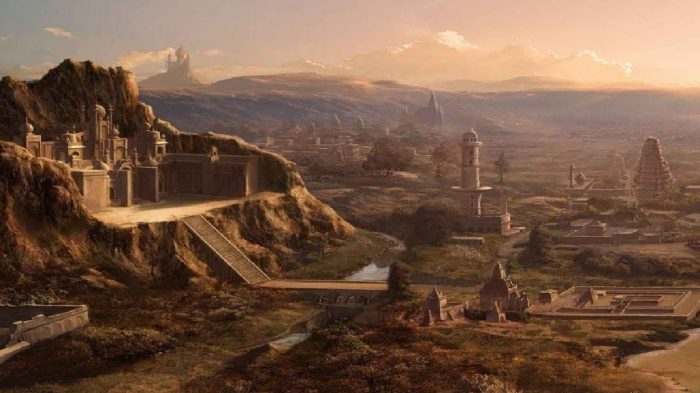Embark on an enlightening journey into the depths of human history with The Beginning of Civilization Crossword Puzzle Answer Key. This comprehensive guide unveils the intricate tapestry of our ancestral past, providing a profound understanding of the factors that shaped the dawn of civilization.
Through a meticulous exploration of archaeological discoveries, cultural practices, technological advancements, and geographic influences, we unravel the mysteries surrounding the emergence of organized human societies. Prepare to delve into the captivating narrative of our shared heritage, deciphering the clues that illuminate the origins of civilization.
History of Civilization

Civilization, the complex organization of human societies, emerged gradually over thousands of years. Its origins can be traced back to the Neolithic Revolution, a period of significant technological and social advancements that occurred around 10,000 BCE.
During this time, humans transitioned from nomadic hunter-gatherer lifestyles to settled agricultural communities. This shift led to population growth, specialization of labor, and the development of social hierarchies. Over time, these early societies evolved into more complex and organized civilizations.
Timeline of Key Events in the Emergence of Civilization
- c. 10,000 BCE:Neolithic Revolution
- c. 3500 BCE:Development of writing in Mesopotamia
- c. 3000 BCE:Rise of urban centers in Mesopotamia and Egypt
- c. 2500 BCE:Indus Valley Civilization flourishes
- c. 2000 BCE:Minoan Civilization emerges on Crete
- c. 1500 BCE:Mycenaean Civilization develops in Greece
Factors that Contributed to the Rise of Civilization, The beginning of civilization crossword puzzle answer key
- Agriculture:The development of agriculture allowed for a stable food supply, leading to population growth and the emergence of settled communities.
- Technology:Innovations such as pottery, metallurgy, and writing facilitated communication, trade, and the organization of complex societies.
- Social Organization:The rise of social hierarchies and political systems provided stability and order, allowing for the coordination of large-scale projects and the development of specialized roles.
- Çatalhöyük, Turkey:A Neolithic settlement dating back to 7500 BCE, known for its large-scale buildings and elaborate wall paintings.
- Ur, Mesopotamia:An ancient city that flourished from 2100 to 500 BCE, known for its ziggurat, a massive stepped temple.
- Mohenjo-daro, Pakistan:An Indus Valley Civilization city dating back to 2600 BCE, known for its advanced urban planning and sanitation systems.
- Incomplete Record:Only a small fraction of ancient settlements and artifacts have been excavated, leaving gaps in our understanding.
- Interpretation Difficulties:Interpreting archaeological findings can be subjective, leading to different conclusions about the past.
- Environmental Factors:Natural disasters and environmental changes can damage or destroy archaeological sites, making it difficult to reconstruct the past.
- Mesopotamia:Fertile river valleys provided ample resources for the development of early civilizations.
- Egypt:The Nile River provided water, fertile soil, and transportation routes, fostering the growth of ancient Egypt.
- Indus Valley Civilization:Located in the Indus River valley, this civilization flourished due to its access to water and fertile land.
- Writing:The development of writing systems spread from Mesopotamia to other regions, including Egypt and the Indus Valley.
- Metallurgy:The knowledge of metalworking spread from the Near East to Europe and Asia, transforming societies.
- Religious Beliefs:Religious ideas and practices diffused between civilizations, influencing their beliefs and rituals.
Archaeological Evidence
Archaeological discoveries provide valuable insights into the beginnings of civilization. Excavations have revealed ancient cities, temples, and artifacts that shed light on the cultural, social, and economic aspects of early societies.
Examples of Archaeological Discoveries
Challenges and Limitations of Archaeological Research
While archaeological discoveries provide valuable information, they also come with challenges and limitations. These include:
Cultural and Social Aspects

Early civilizations were characterized by distinct cultural and social practices. These included:
Religion
Religion played a central role in early civilizations, providing a framework for understanding the world and explaining natural phenomena. Religious beliefs and practices influenced art, architecture, and social customs.
Art
Art flourished in early civilizations, taking various forms such as pottery, sculpture, and painting. Art served religious, decorative, and communicative purposes, providing insights into the beliefs and values of ancient societies.
Language
The development of writing systems revolutionized communication and record-keeping. Written languages allowed for the preservation of knowledge, the dissemination of ideas, and the establishment of complex administrative systems.
Social Organization
Early civilizations had complex social hierarchies, with rulers, priests, warriors, and commoners. Social organization regulated access to resources, power, and status, shaping the daily lives of individuals.
Economic Systems
Agriculture was the primary economic activity in early civilizations. Other economic systems included trade, crafts, and the development of markets, facilitating the exchange of goods and services.
Technological Advancements

Technological advancements were crucial to the development of civilization. Key innovations included:
Agriculture
The domestication of plants and animals led to increased food production, population growth, and the emergence of settled communities.
Metallurgy
The ability to work with metals, such as copper, bronze, and iron, revolutionized tool-making, weaponry, and construction, enabling the development of more complex technologies.
Writing
The invention of writing systems facilitated communication, record-keeping, and the dissemination of knowledge, contributing to the growth and complexity of civilization.
Impact of Technology
Technological advancements had a profound impact on early civilizations, transforming economic systems, social structures, and the pace of innovation.
Geographic Factors
Geography played a significant role in the development of early civilizations. Access to resources, climate, and trade routes influenced the location and growth of these societies.
Access to Resources
Civilizations often emerged in regions with fertile soil, abundant water resources, and access to raw materials such as stone, timber, and metals.
Climate
Favorable climates, such as those in river valleys or coastal areas, provided ideal conditions for agriculture and the development of settled communities.
Trade Routes
Trade routes facilitated the exchange of goods and ideas between different regions, contributing to cultural diffusion and the spread of technological advancements.
Examples of Civilizations in Different Geographic Regions
Cross-Cultural Influences
Early civilizations interacted with each other, leading to the exchange of ideas, technologies, and cultural practices.
Cultural Diffusion
Cultural diffusion refers to the spread of cultural elements from one society to another. This process occurred through trade, migration, and conquest.
Examples of Cultural Diffusion
Query Resolution: The Beginning Of Civilization Crossword Puzzle Answer Key
What factors contributed to the rise of civilization?
The rise of civilization was influenced by a confluence of factors, including environmental stability, access to resources, population growth, and technological advancements.
How do archaeological discoveries provide insights into the beginnings of civilization?
Archaeological discoveries, such as artifacts, structures, and settlements, offer tangible evidence of past human societies, revealing their cultural practices, technological capabilities, and social organization.
What role did religion play in the development of civilization?
Religion played a significant role in shaping early civilizations, providing a system of beliefs, values, and rituals that fostered social cohesion and guided human behavior.
